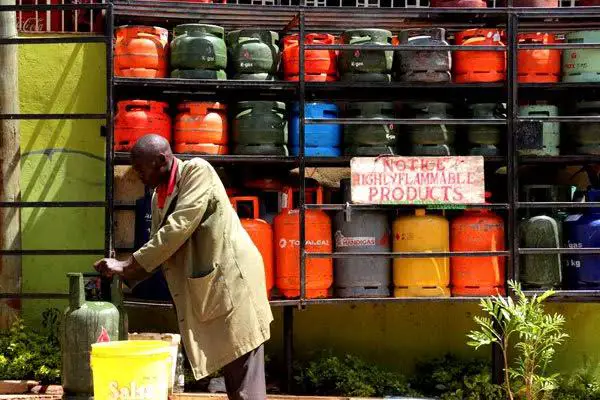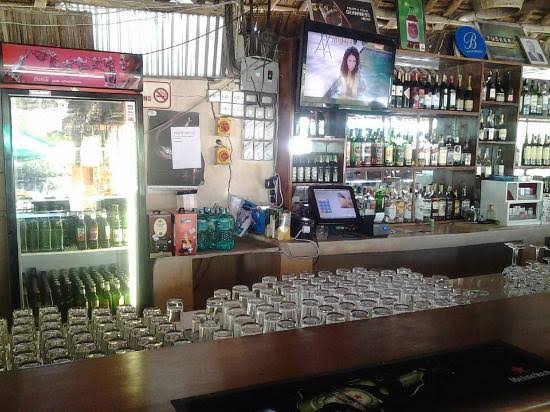
Selling cooking gas without a receipt will from tomorrow attract a fine of Ksh. 50, 000 as the grace period for implementation of tough regulations aimed at curbing illegal trading in Liquefied Petroleum Gas (LPG) lapses.
The receipt will have to include the name and telephone number of the seller, contacts of the consumer, cylinder brand, date of sale as well as serial numbers of the seal and gas container.
The new rules are aimed at tracking the cylinder from the retailer to homes, with the records expected to be stored for at least one year.
The fresh regulations, which received parliamentary approval mid this year, will also demand that oil marketers provide an insurance cover for each cylinder for compensation in case of accidents.
Penalties for illegal gas refilling have been increased more than tenfold to a minimum of Ksh. 10 million in the fresh drive for safety and to protect oil dealers.
This is an upgrade of the 2009 rules that provided a penalty of not more than Sh1 million or jail term of less than one year.
The rules also provide for a Ksh. 10 million fine for those discharging bulk gas in a location that lacks regulatory approval.
The tough regulations were published in the Kenya Gazette in June and offered dealers a six-month transition period during which authorities were restricted from making arrests on the basis of the new rules.
The regulator — Energy and Petroleum Regulatory Authority (EPRA) — says a new enforcement unit has been established to crack down on offenders.
“EPRA has an established Directorate of Enforcement and Consumer Protection that is represented in five regional offices in Nairobi, Mombasa, Kisumu, Nyeri and Eldoret to enforce the regulations,” EPRA Director-General Pavel Oimeke told the Business Daily in an interview.
“The directorate will work with the National Police Service as well as the Anti-Counterfeit Agency (ACA) to ensure that only legitimately filled LPG cylinders are being sold at retail level,” he added.
Besides the penalties, Mr Oimeke stated that traders who fail to issue receipts will also face suspension of their operating licences.
The proposed regulations have attached different fines for the breaches including a fine of more than Ksh. 1 million for selling gas without permits or transporting the commodity in a vehicle not approved by the energy regulator.
The new rules also cap the number of cylinders that can be transported in a car to three unless regulatory exemptions are issued in a fresh attempt to curb those dealing in illegal refills and selling the commodity at a discount of up to 25 percent.
Marketers will be expected to be in a position to track cylinders by use of Radio Frequency Identification or quick response code or any other appropriate technology under the tightened regulations.
The dealers will also be required to maintain a list of its authorised filling agents, wholesalers, retailers and cylinder requalification agents, serial numbers or quick response codes and date of requalification for each cylinder.
Wholesalers who fail to keep gas cylinder records for more than year will face a fine of Ksh 50,000 for each offence.
The records must include the serial number of each cylinder, date of purchase, weight of each cylinder and name of retailer buying the cylinders.
EPRA says it has hired a private compliance inspector to monitor retailers who will breach the regulations.
Illegal possession of LPG seals without the cylinder brand owner’s authority will see those caught fork out Ksh. 20,000 for each seal.
Independent gas dealers lobby–Energy Dealers Association (EDA)—has sought for another six months extension for implementation of the regulations, arguing that only 10 percent of their members are ready to operate under the new tough rules.
“We are asking for an extension of six months because even some multinational petrol stations are not licensed. We do not know if we will be allowed to operate and how they will enforce the regulations if they claim we are operating illegally,” said Peter Macharia, EDA chairman.
The stepping up of the fight against illegal LPG dealers comes in a period when gas prices are trading at levels last seen in 2016 before the government removed value-added tax (VAT) on the clean fuel.
The cost of refilling a 13-kg gas cylinder at petrol stations has increased to about Ksh. 2,200.
Prices stood at an average Ksh. 2,231 in June 2016 and dropped to below Sh2,000 in October, four months after the scrapping of the 16 percent VAT.
The Treasury scrapped the tax on gas to cut costs and boost uptake among poor households that rely on dirty kerosene and charcoal for cooking.
Rising prices have egged on illegal dealers who offer a discount.





















































